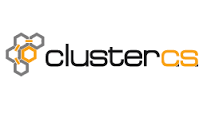Description

Cluster CS

GoDaddy
Comprehensive Overview: Cluster CS vs GoDaddy
Cluster CS and GoDaddy are both platforms that serve different functions in the web hosting and domain management space. Here’s a comprehensive overview of their primary functions, target markets, market share, user base, and differentiating factors:
a) Primary Functions and Target Markets
Cluster CS
-
Primary Functions:
- Cluster CS focuses on server management and infrastructure automation. It provides a cloud-based control panel designed to simplify server setup, management, and monitoring.
- It offers features like server provisioning, automated deployments, load balancing, and security management.
- Cluster CS is particularly aimed at simplifying the management of cloud-based server infrastructures for hosting web applications.
-
Target Markets:
- Small to medium-sized enterprises (SMEs) that require scalable server management solutions.
- Development teams and IT professionals looking for automated server management tools.
- Companies that rely on multiple cloud providers or hybrid environments and need a unified management solution.
GoDaddy
-
Primary Functions:
- GoDaddy is one of the largest domain registrars and web hosting companies globally. It offers services like domain registration, web hosting, SSL certificates, website building tools, and email hosting.
- GoDaddy also provides managed WordPress hosting, VPS hosting, and dedicated servers.
-
Target Markets:
- Individuals and small businesses looking to establish an online presence through domains and simple web hosting solutions.
- Small to medium-sized businesses needing comprehensive web services and hosting solutions.
- Entrepreneurs and startups seeking affordable and easily implementable web solutions.
b) Market Share and User Base
-
Market Share:
- Cluster CS is a niche platform with a smaller market share compared to GoDaddy. It caters to specific server management needs and therefore has a targeted audience.
- GoDaddy, with its extensive portfolio of domain and hosting services, commands a substantial share of the market in both domain registration and web hosting. It is one of the leading names in the industry with millions of users worldwide.
-
User Base:
- Cluster CS has a smaller, more specialized user base consisting of IT professionals and businesses with particular needs for cloud server management.
- GoDaddy boasts a vast user base, from individuals and small businesses to enterprises, due to its wide range of accessible and user-friendly web services.
c) Key Differentiating Factors
-
Complexity and Customization:
- Cluster CS differentiates itself by offering advanced server management capabilities with deep customization options for technical users.
- GoDaddy offers more straightforward, user-friendly solutions aimed at non-technical users seeking quick setup and minimal configuration.
-
Scope of Services:
- Cluster CS is specialized in server management, making it more suited for users with pre-existing hosting needs who seek to streamline their infrastructure management.
- GoDaddy provides a comprehensive suite of web services, appealing to users looking for a one-stop shop for domain registration, hosting, email, and additional marketing services.
-
Ease of Use:
- Cluster CS may have a steeper learning curve due to its focus on complex server setups and management tasks, positioning it more towards tech-savvy users.
- GoDaddy’s platform is designed to be accessible for beginners, offering straightforward tools and extensive customer support.
Overall, Cluster CS and GoDaddy cater to different segments within the web hosting and domain industry, with Cluster CS focusing on advanced server management and GoDaddy offering a wide array of web access solutions.
Contact Info

Year founded :
Not Available
Not Available
Not Available
Not Available
Not Available

Year founded :
1997
Not Available
Not Available
United States
Not Available
Feature Similarity Breakdown: Cluster CS, GoDaddy
To provide a feature similarity breakdown for Cluster CS and GoDaddy, I'll outline the commonalities and differences typically associated with these platforms. Both are generally involved in web hosting and server management, but they cater slightly different audiences and have distinct offerings. Here's a general analysis:
a) Core Features in Common:
-
Web Hosting Solutions:
- Both Cluster CS and GoDaddy offer web hosting services, although their primary focus and implementation can differ.
-
Domain Management:
- GoDaddy is particularly known for domain registration, and while Cluster CS is primarily a server management tool, domains can be managed and paired within the hosting environments offered.
-
Security Features:
- Both platforms offer security measures like SSL certificates, firewall configurations, and malware scanning and removal.
-
Scalability:
- Both Cluster CS and GoDaddy provide scalable hosting solutions, allowing users to upgrade their server capabilities as their needs grow.
-
User Support:
- Customer support features, including 24/7 assistance and a variety of self-help resources, are offered by both.
b) User Interface Comparison:
-
Cluster CS:
- Cluster CS often presents a more specialized interface aimed at developers and tech-savvy users. It focuses significantly on server management, offering detailed and customizable controls.
- The UI is designed for managing multiple servers efficiently, providing detailed metrics and task automation features.
-
GoDaddy:
- GoDaddy typically features a user-friendly interface aimed at general users and small business owners. The focus is on simplicity and ease of use.
- The dashboard is often intuitive and less technical, designed for easy navigation with quick access to web building tools, domain management, and hosting services.
c) Unique Features:
-
Cluster CS:
- Detailed Server Management: Offers comprehensive tools for managing and deploying applications on VPS and dedicated servers.
- Customizable Configurations: Users can extensively customize server configurations, which is appealing to developers and IT professionals.
- Automation Features: Advanced automation options for server setup, system monitoring, and scaling resources.
- Multi-Server Management: Unique ability to manage multiple servers and applications from a single interface.
-
GoDaddy:
- Website Builder: Provides an easy-to-use website builder for users looking to create sites without technical knowledge.
- Domain Auctions and Aftermarket Services: As one of the largest domain registrars, GoDaddy offers unique features like domain auctions and a marketplace for buying and selling existing domains.
- Marketing Tools: Comprehensive marketing tools, including SEO, email marketing, and online storefronts for ecommerce businesses.
- Integration Services: Broad compatibility with various tools and services, such as WordPress hosting and Office 365.
Overall, while Cluster CS offers advanced server management capabilities and customization suited for more technical users, GoDaddy provides a broad spectrum of services including web hosting, domain management, and marketing tools, with an emphasis on usability and accessibility.
Features

Not Available

Not Available
Best Fit Use Cases: Cluster CS, GoDaddy
Cluster CS and GoDaddy both serve as solutions for web hosting and server management, yet they cater to different needs and types of businesses. Here's an overview of scenarios where each might be the best fit:
Cluster CS
a) Best Fit Use Cases:
-
Tech-Savvy Businesses or Developers:
- Cluster CS is ideal for businesses with technical expertise that need high levels of customization and control over their server environments.
- It's suitable for developers or companies that require the ability to manage multiple servers and configurations with ease.
-
Resource-Intensive Applications:
- Businesses running applications that are resource-intensive (such as large e-commerce sites, streaming services, or SaaS applications) may benefit from the optimized resource management offered by Cluster CS.
-
Startups and Growing Companies:
- Startups that prioritize scalability and flexibility to grow quickly can benefit from Cluster CS’s server management features, allowing easy scaling as traffic or data grows.
-
Web Agencies:
- Agencies managing multiple client sites can use Cluster CS to efficiently manage server resources and configurations on behalf of their clients.
d) Industry Verticals and Company Sizes:
- Cluster CS caters well to technology companies, digital agencies, media, and entertainment industries where server performance and control are critical.
- It's more suited for small to medium-sized enterprises (SMEs) that have dedicated IT resources.
GoDaddy
b) Preferred Scenarios:
-
Small to Mid-sized Businesses (SMBs):
- GoDaddy is an excellent choice for businesses that need straightforward, user-friendly web hosting solutions with an easy setup process.
- It's suited for companies that might not have a dedicated IT team and require support services.
-
Individuals or Startups:
- Individuals and new startups looking to establish an online presence quickly, without complex configurations, will find GoDaddy’s offerings accessible.
-
E-commerce Platforms:
- Businesses intending to run small to medium e-commerce sites can use GoDaddy with its integrated services and tools designed for online store management.
-
User-Friendly Hosting Needs:
- In scenarios where ease of use, quick setup, and reliable support are valued over technical customization, GoDaddy's intuitive platform is advantageous.
d) Industry Verticals and Company Sizes:
- GoDaddy caters primarily to non-tech industries such as retail, hospitality, personal services, and small legal or consultancy firms.
- It is most suitable for small businesses, mom-and-pop shops, and individuals who need a blend of affordability and ease-of-use in hosting services.
In summary, while Cluster CS is ideal for tech-centric organizations needing server customization and scalability, GoDaddy is best for small businesses and individuals seeking simplicity, support, and an affordable entry into web hosting.
Pricing

Pricing Not Available

Pricing Not Available
Metrics History
Metrics History
Comparing undefined across companies
Conclusion & Final Verdict: Cluster CS vs GoDaddy
To provide a conclusion and final verdict on Cluster CS versus GoDaddy, it's essential to assess these two hosting solutions across various factors such as features, pricing, performance, user experience, and support.
Conclusion and Final Verdict
a) Best Overall Value
Considering all factors, GoDaddy generally offers the best overall value for a wider range of users. This is due to its extensive suite of services, user-friendly platform, and better support for beginners and individuals looking for an all-in-one solution. However, Cluster CS might offer better value for users with specific needs for cloud orchestration and those seeking highly customizable server management.
b) Pros and Cons of Choosing Each Product
Cluster CS:
-
Pros:
- Offers advanced server management with support for cloud orchestration.
- Highly customizable, making it suitable for tech-savvy users or businesses with specific server management needs.
- Can integrate seamlessly with various cloud providers, offering flexibility and scalability.
-
Cons:
- Steeper learning curve, not as beginner-friendly.
- May require more technical expertise to leverage its full potential.
- Limited integrated services compared to GoDaddy, focusing primarily on server management rather than a full service hosting solution.
GoDaddy:
-
Pros:
- Comprehensive range of services including domain registration, hosting, website builder, and more.
- User-friendly with intuitive interfaces suitable for beginners.
- Reliable customer support with 24/7 availability.
-
Cons:
- Less flexibility and customization for advanced users compared to Cluster CS.
- Can be more expensive for high resource needs or when scaling up.
- Some users report performance issues at peak times or with certain services.
c) Recommendations for Users
-
For Beginners or Businesses Seeking Comprehensive Solutions:
GoDaddy is recommended for its user-friendliness, extensive suite of services, and strong customer support. It's suitable for individuals or businesses looking for an all-in-one solution without needing deep technical knowledge. -
For Tech-Savvy Users or Those Needing Custom Server Management:
Cluster CS is recommended for those who need advanced server settings, cloud orchestration, and greater control over their hosting environments. It's ideal for developers or businesses with specific demands for server customization and management.
Ultimately, the decision between Cluster CS and GoDaddy should be based on the user's technical expertise, specific hosting needs, and desire for either a more managed approach or a hands-on, customizable server environment.



